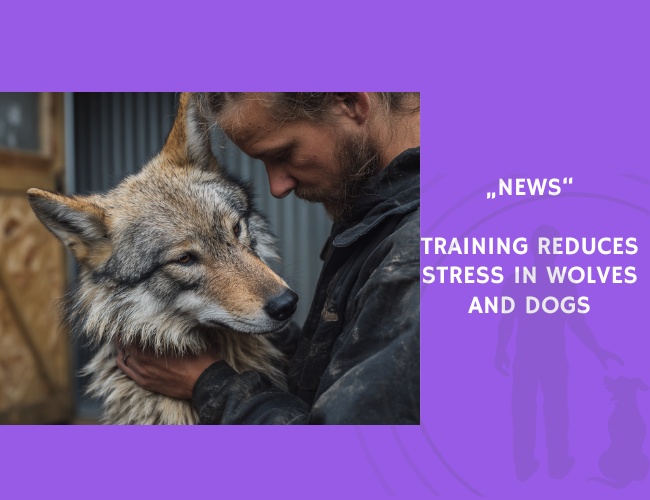Animal welfare in captivity is often challenged by limited environmental control and restricted social choice, which can increase stress—particularly in wild species. However, positive human–animal interactions, such as structured training, may help mitigate these effects. This study compared the physiological and behavioral responses of human-socialised wolves and domestic dogs during controlled training sessions.
Nine wolves and nine dogs, all raised and housed in intraspecific packs under identical conditions, participated in indoor training with familiar caretakers. Salivary cortisol was measured as an indicator of stress, alongside behavioral observations for cooperation and engagement. Trainers’ cortisol and testosterone levels were also recorded to rule out effects from handler stress.
During sessions, both wolves and dogs stayed close to trainers, responded accurately to familiar cues, and showed no signs of avoidance. Importantly, salivary cortisol levels in both species dropped during training, indicating reduced stress. The degree of stress reduction varied between trainers, suggesting a social component to the calming effect.
Because all animals were performing already-known behaviors, the observed benefits were attributed not to learning but to the combined effects of positive interaction, food rewards, and a sense of control. These findings reinforce that structured, reward-based training can be a valuable welfare tool for both domestic dogs and certain wild social canids.
Source: Vasconcellos, A. S., Virányi, Z., Range, F., Ades, C., Scheidegger, J. K., Möstl, E., & Kotrschal, K., PLoS ONE, September 9, 2016. https://doi.org/10.1371/journal.pone.0162389










